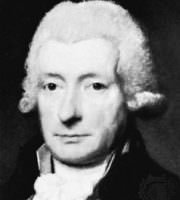by William Cowper
These verses also to thy praise the Nine
Oh Manso! happy in that theme design,
For, Gallus and Maecenas gone, they see
None such besides, or whom they love as Thee,
And, if my verse may give the meed of fame,
Thine too shall prove an everlasting name.
Already such, it shines in Tasso's page
(For thou wast Tasso's friend) from age to age,
And, next, the Muse consign'd, not unaware
How high the charge, Marini to thy care,
Who, singing, to the nymphs, Adonis' praise,
Boasts thee the patron of his copious lays.
To thee alone the Poet would entrust
His latest vows, to thee alone his dust,
And Thou with punctual piety hast paid
In labour'd brass thy tribute to his shade.
Nor this contented thee-but lest the grave
Should aught absorb of their's, which thou could'st save,
All future ages thou has deign'd to teach
The life, lot, genius, character of each,
Eloquent as the Carian sage, who, true
To his great theme, the Life of Homer drew.
I, therefore, though a stranger youth, who come
Chill'd by rude blasts that freeze my Northern home,
Thee dear to Clio confident proclaim,
And Thine, for Phoebus' sake, a deathless name.
Nor Thou, so kind, wilt view with scornful eye
A Muse scarce rear'd beneath our sullen sky,
Who fears not, indiscrete as she is young,
To seek in Latium hearers of her song.
We too, where Thames with his unsullied waves
The tresses of the blue-hair'd Ocean laves,
Hear oft by night, or, slumb'ring, seem to hear
O'er his wide stream, the swan's voice warbling clear,
And we could boast a Tityrus of yore,
Who trod, a welcome guest, your happy shore.
Yes, dreary as we own our Northern clime,
E'en we to Phoebus raise the polish'd rhyme,
We too serve Phoebus; Phoebus has receiv'd,
(If legends old may claim to be believ'd)
No sordid gifts from us, the golden ear,
The burnish'd apple, ruddiest of the year,
The fragrant crocus, and, to grace his fane,
Fair damsels chosen from the Druid train-
Druids, our native bards in ancient time,
Who Gods and Heroes prais'd in hallow'd rhyme.
Hence, often as the maids of Greece surround
Apollo's shrine with hymns of festive sound,
They name the virgins who arriv'd of yore
With British off'rings on the Delian shore,
Loxo, from Giant Corineus sprung,
Upis, on whose blest lips the Future hung,
And Hecaerge with the golden hair,
All deck'd with Pic'ish hues, and all with bosoms bare.
Thou therefore, happy Sage, whatever clime
Shall ring with Tasso's praise in after-time,
Or with Marini's, shalt be known their friend,
And with an equal flight to fame ascend.
The world shall hear how Phoebus and the Nine
Were inmates, once, and willing guests of thine.
Yet Phoebus, when of old constrain'd to roam
The earth, an exile from his heav'nly home,
Enter'd, no willing guest, Admetus' door,
Though Hercules had enter'd there before.
But gentle Chiron's cave was near, a scene
Of rural peace, clothed with perpetual green,
And thither, oft as respite he requir'd
From rustic clamours loud, the God retir'd.
There, many a time, on Peneus' bank reclin'd
At some oak's root, with ivy thick entwin'd,
Won by his hospitable friend's desire
He sooth'd his pains of exile with the lyre.
Then shook the hills, then trembled Peneus' shore,
Nor Oeta felt his load of forests more,
The upland elms descended to the plain,
And soften'd lynxes wonder'd at the strain.
Well may we think, O dear to all above!
Thy birth distinguish'd by the smile of Jove,
And that Apollo shed his kindliest pow'r,
And Maia's son, on that propitious hour,
Since only minds so born can comprehend
A poet's worth, or yield that worth a friend.
Hence, on thy yet unfaded cheek appears
The ling'ring freshness of thy greener years,
Hence, in thy front, and features, we admire
Nature unwither'd, and a mind entire.
Oh might so true a friend to me belong,
So skill'd to grace the votaries of song,
Should I recall hereafter into rhyme
The kings, and heroes of my native clime,
Arthur the chief, who even now prepares,
In subterraneous being, future wars,
With all his martial Knights, to be restor'd
Each to his seat around the fed'ral board,
And Oh, if spirit fail me not, disperse
Our Saxon plund'rers in triumphant verse!
Then, after all, when, with the Past content,
A life I finish, not in silence spent,
Should he, kind mourner, o'er my deathbed bend
I shall but need to say--"Be yet my friend!"
He, faithful to my dust, with kind concern
Shal1 place it gently in a modest urn;
He too, perhaps, shall bid the marble breathe
To honour me, and with the graceful wreath
Or of Parnassus or the Paphian isle
Shall bind my brows--but I shall rest the while.
Then also, if the fruits of Faith endure,
And Virtue's promis'd recompense be sure,
Borne to those seats, to which the blest aspire
By purity of soul, and virtuous fire,
These rites, as Fate permits, I shall survey
With eyes illumin'd by celestial day,
And, ev'ry cloud from my pure spirit driv'n,
Joy in the bright beatitude of Heav'n!
Last updated January 14, 2019




